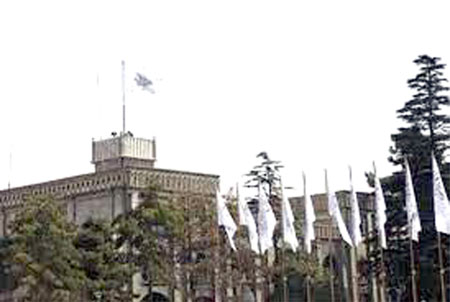More than 50 members of the French parliament have called to impose travel sanctions of Islamic Emirate officials in response to the closing of girls’ schools, restrictions imposed on women, and reported human rights abuses in Afghanistan.
In a letter to the French president and parliament speaker, the signers said they sought to force the Islamic Emirate to fulfill its commitments.
“Human rights abuses have been widely reported since the Taliban takeover of Afghanistan, the deprivation of female students from schools, the deprivation of women from work, the ban on women traveling and leaving their homes without a mahram are major acts committed by the Taliban in Afghanistan during this period, which is why we call on President Macron to add sanctions to the travel of Taliban officials,” the letter reads.
But the Ministry of Education blames cultural challenges, the economic crisis and a lake of female teachers for the delay in reopening girls’ schools, adding that girls’ schools above the sixth grade will reopen in the near future.
“When schools above the seventh grade are separated, female teachers need to be hired. For example, there are more female teachers in cities, but fewer women teachers in villages and districts,” said Aziz Ahmad Rayan, a spokesman of the Ministry of Education.
“If the Islamic Emirate does not care about the conditions of the international community regarding education and other issues of good governance, the government of the Islamic Emirate will be isolated in the international system,” said Abdul Habib Fani, a political analyst.
Meanwhile, the United Nations High Commissioner of Refugees (UNHCR) has expressed grave concerns over the closing of secondary schools for Afghan girls.
“We are deeply concerned about women and girls in Afghanistan. In addition to restrictions on movement, access to work and education, they face heightened risks to safety and well-being. Their rights must be upheld,” UNHCR tweeted.
Markus Potzel, German ambassador-designate to Afghanistan, met with Suhail Shaheen, head of the UAE’s political office in Qatar, and called for the reopening of secondary and high schools for girls.
“The Taliban represent a limited minority in Afghanistan, and it is very important that the wishes of the entire Afghan people be taken into account, not a limited minority,” said Zarqa Yaftali, a women’s rights activist.
The United States, the World Bank, the European Union and other countries have voiced strong reactions to the closing of girls’ schools in Afghanistan.
“According to the Sharia rules, a woman has full rights to study Sharia and modern sciences alongside a man. That is why we call on the Islamic Emirate to open the doors of education for girls and remove all obstacles in this regard,” the statement reads.
“Girls have the right to education, and the way should be paved for them. According to Islam, every Muslim has the right to education and it should be provided to him or her,” said a religious scholar.
“According to the ruling of Islam, there are no obstacles blocking the education of girls, and learning is the presumed right of every person, and girls should be given this right to be educated,” said Faiz Mohammad Zaland, a university lecturer.
Meanwhile, Yvonne Ridley, deputy of the European Muslim Union, in an exclusive interview with TOLOnews, expressed concern over the situation of girls’ education in Afghanistan. She said that in her meeting with the officials of the Islamic Emirate she asked for the reopening of secondary and high schools for girls as soon as possible.
“The senior girls’ schools opened then closed and this is something that I have raised with the Taliban leadership. So, they promised a great deal at a historic press conference that they gave when they assured the world that women’s rights would be observed,” she said.
In the meantime, in Berlin a number of Afghans living in Germany as well as German citizens protested against the closing of girls’ schools above the sixth grade and demanded the reopening of schools.
“We are with the girls of Afghanistan and I tell them that they will go to school as soon as possible,” said Afghan refugees in Germany.
Over two hundred days have passed since the closing of girls’ schools above the sixth grade in the country. The decision was met with widespread domestic and international reactions, and a recent meeting of envoys in Europe which included US and UK representatives issued a statement saying that the scope of continued aid to Afghanistan will be conditional on reopening schools for girls.










